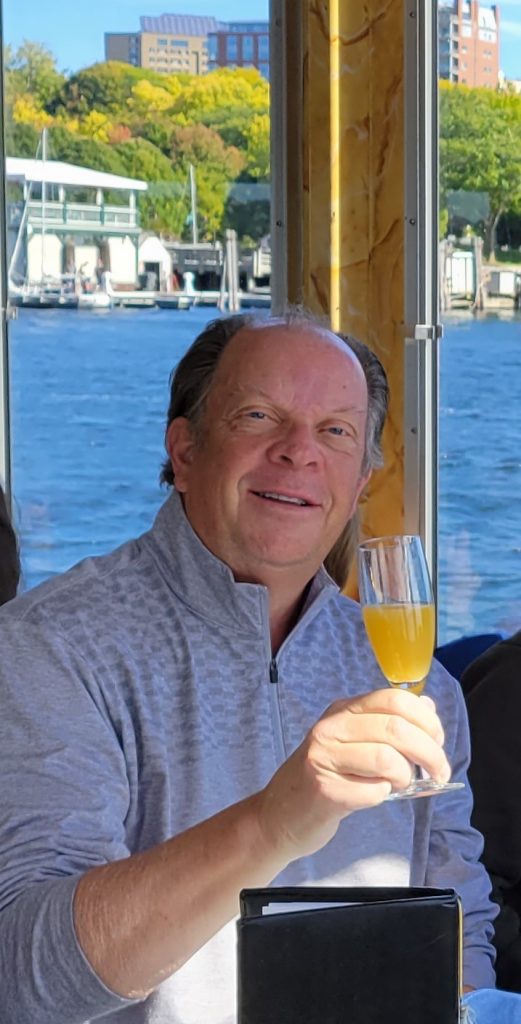
Authors of fiction make our hearts beat faster, take us to another place, make us fall in love with a superb character, open up new ideas, or feed our souls. On rare occasions, you read a story by a master storyteller and experience all of the above.
Today, my guest is an author with years of experience and an imagination to bring new worlds to life where all your senses get engaged. This talented author is a man I wanted to learn more about and share with you.
John Posner, welcome to my blog. Thank you for taking the time to share memories, thoughts, and insights with my readers. And cheers to your taste in mimosas, one of my favorites.
Hi Rox. Thank you for this opportunity.
John, you and I have a professional background in IT. As a technical writer in this field, I feel certain you’ve felt the pain of writing a manual or white paper only to learn in three months it’s outdated. How much of your technical writing expertise finds its way into your fictional writing?
Rox, you’re right-on about having to rewrite. It could be for a variety of reasons–because of changing technology or because of a customer’s desire for a different solution. That experience has provided me with two big lessons for writing novels.
Patience is one. With my book Forever is Too Long, I self-edited several times before I sent it to a professional editor, then came the shocking experience. There was a LOT more work to do.
It was like taking a completed jigsaw puzzle, dumping out all the pieces and creating a new puzzle. Some old pieces would fit, others needed to be reshaped, and sometimes I had to find new pieces. It took a lot of hard re-work and patience to stick with it,
The second big take-away was the importance of logic. One can create the most fantastical of settings or characters, but the internal logic of plot and characters have to hold together.
I notice you enjoy some of the finer science fiction authors, such as Robert A. Heinlein, H. G. Wells, Stephen King, and Ray Bradbury, as well as a slew of graphic novel creators. Do you have one that sticks out more than the others, and if so, why?
What day is today? Tuesday?, then it’s Asimov. Wednesday?, then Heinlein. You see me quandry. I’ve always appreciated Bradbury for his forthrightness in using sci-fi for talking about themes and the psychology of humanity. Regards Stephen King—it’s his creative capacity to take an innocent thing or condition and lead us into our darkest nightmares.
I must know the same for your fascination with Twilight Zone, Outer Limits, Star Trek, Star Wars, 2001. Do you have a favorite, and how does it earn that spot on your list?
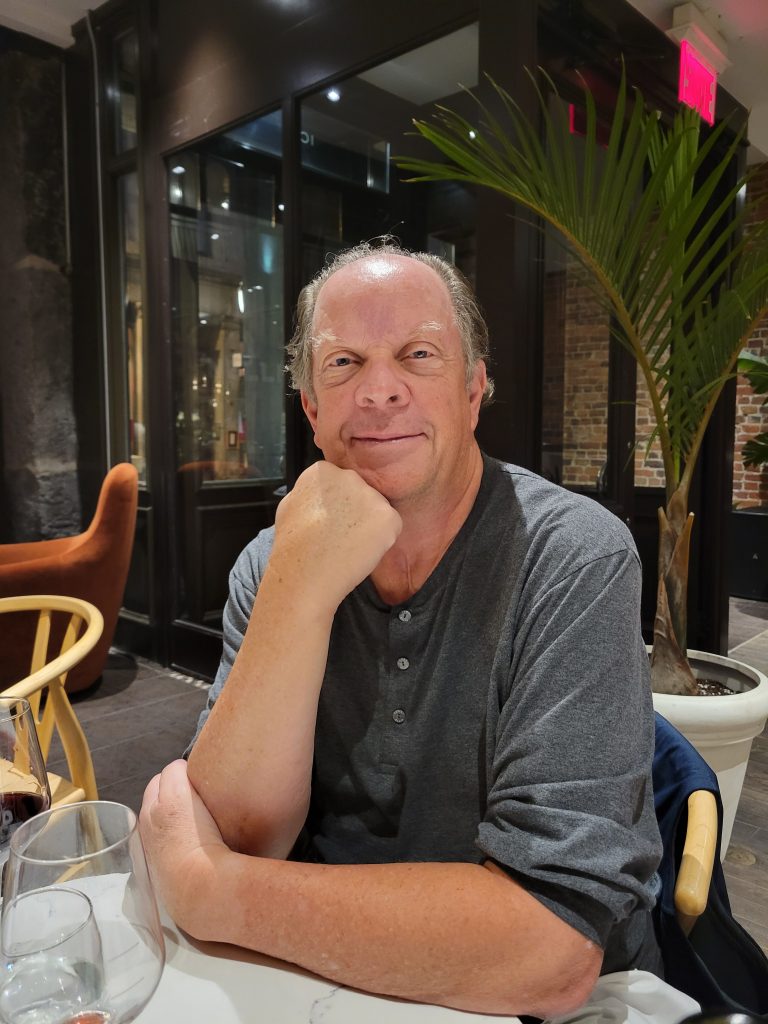
Oh, my goodness. This is going to date me. I grew up watching Twilight Zone and Outer Limits during the 50’s-60’s. Even my parents and grandfather watched.
I remember an episode where the hands of doctors are unwrapping the completely bandaged face of a person. Unwrapping the bandages took so long, building the tension. Finally, unveiled, was the face of an incredibly beautiful woman. I could feel my spirits lift. Then the camera cut to the faces of the doctors—ugly strange aliens with horror etched across their faces, and they are staggering backwards from the woman’s ugliness.
A fun fact about Star Wars. Lucas screened the original Star Wars in front of Spielberg, DePalma, Scorcese, and Coppola. One said Lucas would make a ton of money, another didn’t understand “The Force”, all thought it needed a lot more work. As we all know, the rest is history.
I know you live in Maryland and have a barbequing talent, too. I’ll get back to that aspect in a moment. Is Maryland where you grew up, and can you share a bit about your childhood, which you feel influenced your writing?
I moved to Maryland in 2002. I’ve fallen in love with the state. It has the weirdest shape. Western Maryland has mountains. The Eastern shore abuts the Atlantic Ocean. Chesapeake Bay runs in the middle. There’s major metropolitan cities close by, or rural countryside if that’s your preference. I grew up in Iowa. There was a lot of freedom growing up. You were responsible for not being late for dinner. My mom even rang a bell. For the other part of the day, we were mostly on our own figuring out what to do. Sometimes we’d trek down to a nearby river, scrounge up some logs and float down the river. I think this freedom really helped develop my creativity. One had to learn to solve problems or invent something interesting to do.
Try to understand what kind of writer you are. Are you a “pantser”—one who writes “by the seat of their pants” with little pre-planning. Or is one a planner, creating a detailed plot line or well-developed characters before starting to write.
In terms of writing, it has always felt like a natural thing to do. I dabbled in writing short stories during my college years through a writer’s workshop, but then life intervened. Fast forward decades, and here I am. I think this is called— “a late bloomer”.
Rox, may I compliment you on your good taste (LOL). The urge to write a book and the idea of life extension kept popping into my mind. My older friends would sometimes talk about being young again and would always answer “yes” to the idea of being able to live an extra 50 years, IF HEALTHY. But then, if I posed the idea that tyrants could make use of the same technology, there would be a long pause. The concept of immortality and its unintended consequences begged for a novel.
As I thought more about it and the idea of living forever, the title popped into my head. The title encapsulated the idea. I’m a “pantser”-style writer. I sat down and started writing. A confession—I often didn’t know what I was doing, so as scenes developed or characters evolved, I often added more complexity to solve the immediate problem of plot or character. That was probably not how a young writer should begin. After surviving the crucible of editing, the readers—I hope—get a wild ride of plot twists and dynamic characters.
Who do you consider your audience for Forever is Too Long?
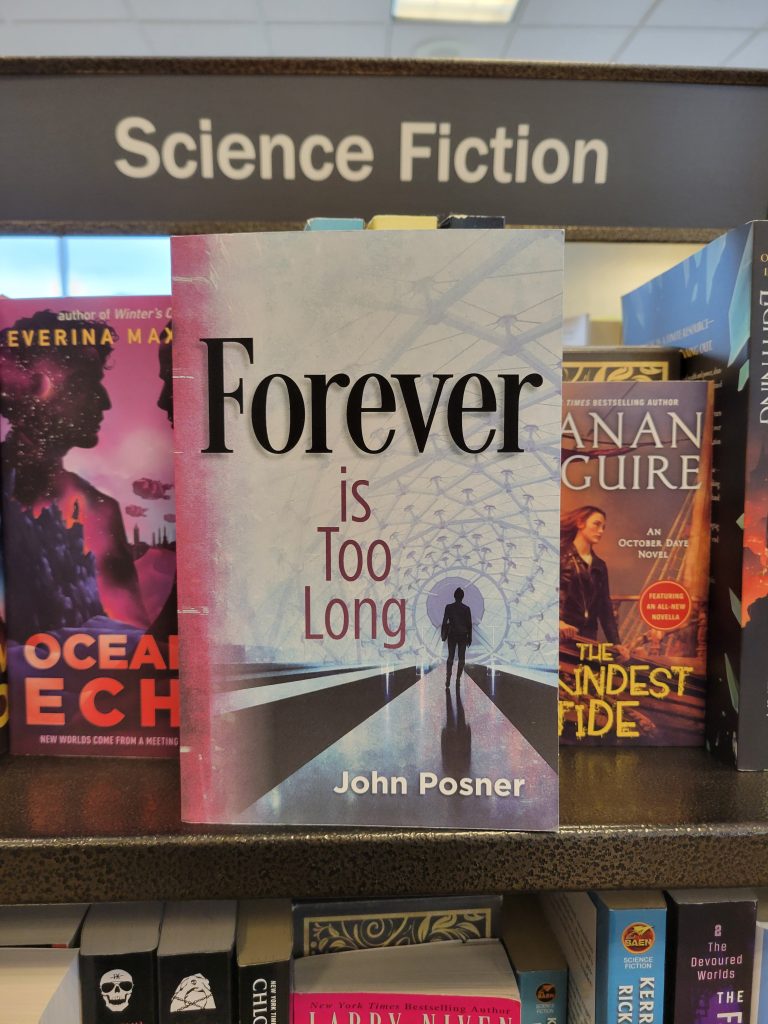
It’s a long book, close to 600 pages not including the ancillary pages, so I would say advanced young adults up to adults. From a readability point of view, it is easily accessible to a wide age range.
Are your characters based on people you know?
No. None of them are, except to say that the bond I have with my sister is reflected in the bond between Noah and his sister Frankie.
Do you have a favorite character you wish to bring back in a future story?
Definitely. There are several threads that can be taken forward. I think all the protagonists could revisit a sequel. But even if all revisited, I think an interesting idea might include a coming-of-age twist for Noah. I envision a possible combination of: the animalism of deep woods, Alice in Wonderland, and an alliterative descent like Dante’s inferno. Of course, Noah would have to “come up for air” sometime, so to speak. There are many threads to continue from how the first novel ended regarding Mindars, Biotars, and humans.
What is your overall story process that you can share with new writers?
For myself, I am much more of a pantser. I love how the tangents of a story and characters take on lives of their own. But I will admit that as I’ve worked on additional novels, I’m becoming more of a hybrid writer.
Embrace who you are and write. Imperfections can be fixed later.
What was your personal goal in writing this book and how long do you believe it will take to reach that milestone?
I like discussing thematic elements. Writing science fiction and fantasy allows for that expression, maybe even begs the author to do it. The idea of technology providing the ability to live forever, to live as a digital being within an almost unlimited multiverse, or the ability to genetically enhance one’s children, are concepts that were begging to be talked about.
If Forever is Too Long can create debate on these topics, on the characters, on how the reader sees the unintended consequences…and get to experience a wild plot ride in the process, that would be satisfying. Regards to a timeline? That’s up to the fates.
Maryland is a close-knit community in many ways. Are you part of a library or independent writer’s group to collaborate on your creative ideas?
Looking for one.
You included a wonderful glimpse into your next book at the end, He Died Two Days Ago. How is that progressing? Inquiring minds want to know.
Additionally, readers can get an extended peek at the new novel (Warning! Pre-edit version) with a free download from the website. Think—film noir, pulp fiction, and alien inhabitation. Way different for sure. I turned it over to my editor this week. I feel like I learned a lot from the first novel, so I’m hoping completion of the second novel will progress a bit more easily.
What is your favorite way to cultivate your fans?
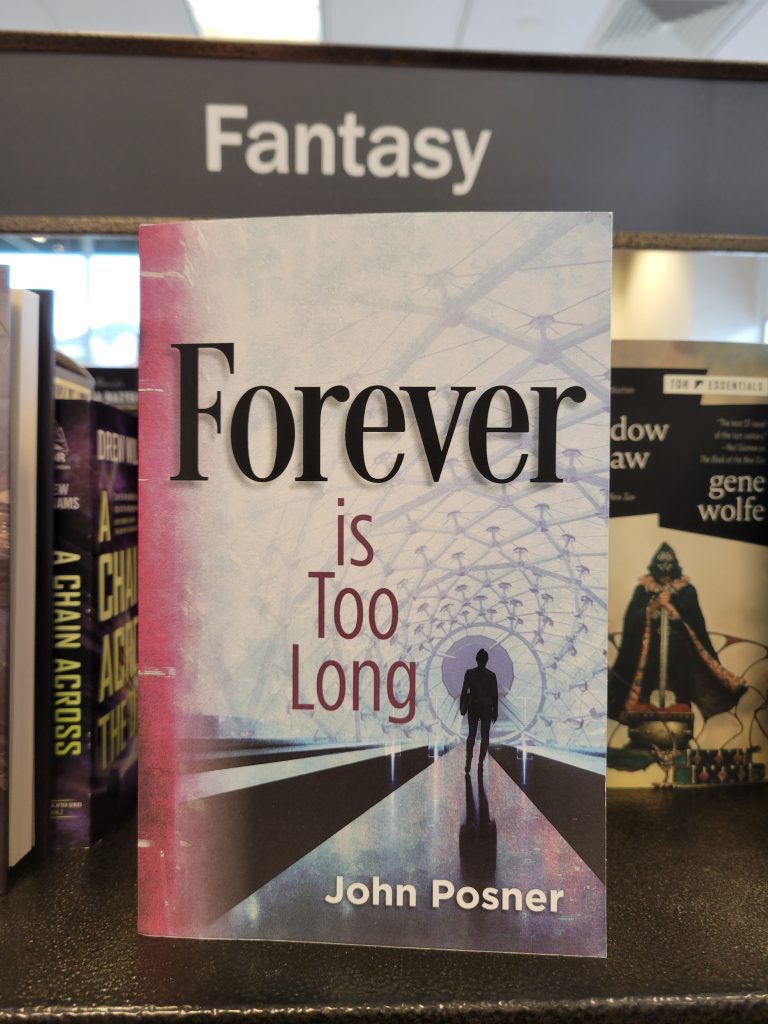
Instagram, Facebook, Website. If you use my website to add your email and send me thoughts and comments, I’ll do my best to answer as time allows, but having your email allows for me to send a newsletter.
Now, back to the foodie part and your barbequing expertise. Fans of Science Fiction invite you to their annual event to speak about your award-winning Forever is Too Long. One stipulation is that you must prepare the meat for the guests at your table. Two of the guests at your table are your two favorite authors, living or not. What would you prepare? What questions would you like to discuss and learn the answers to from them while you’re cooking?
This question is too hard! A smoked brisket or pork shoulder comes to mind (I’ll be starting early before they arrive.) I’d pick Ray Bradbury and Stephen King and if I could choose a third, it would be Leo Tolstoy. I’d ask Bradbury, “What is humanity destined for and why?” For King, I’d ask “How do you make characters feel real?” And for Tolstoy, he’d have to answer both questions.
What is an achievement you would like to earn?
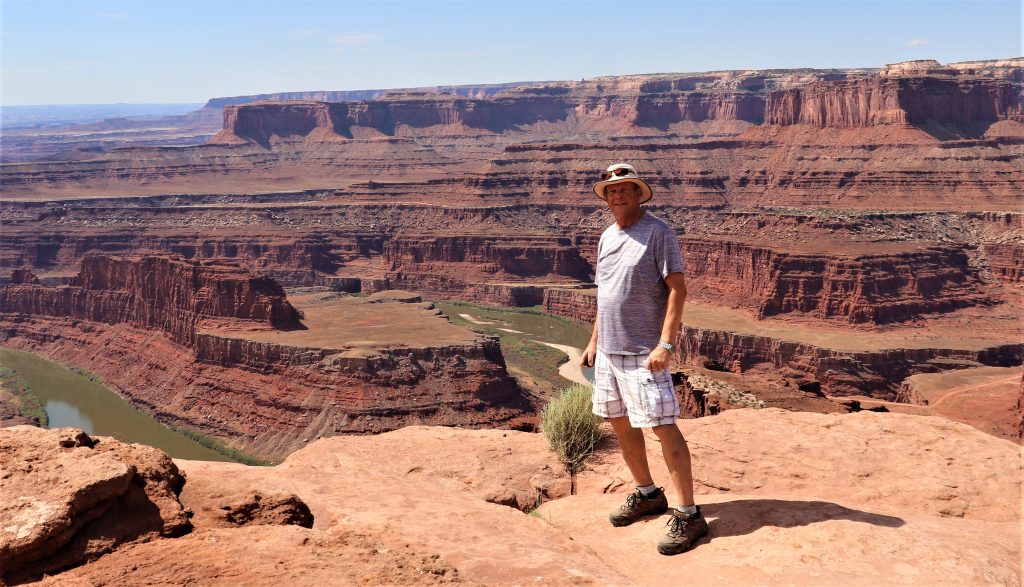
I want sci-fi/fantasy readers to pick up a copy of my book(s) and give it a chance. I’d like be known for thematic journeys while also treating readers to an adventurous escape. I’d like my works to endure in the sci-fi/fantasy pantheon. And of course, like all writers, that one’s past work self-funds future work. The rest is up to the fates.
Do you read your reviews, and do they impact your writing?
Yes. Obviously, positive reviews make an author feel good. In an author’s early stages of writing, positive reviews can do a lot to buoy one’s psyche. But I think an author has to understand that reviewers, at one level, are simply readers. Different genres and writing styles appeal to different readers. An author needs to take all reviews with a grain of salt. Sometimes a negative review happens because the reader didn’t understand what an author was trying to do, but other times, a negative comment can be insightful. The worst reviews are those where it appears the reviewer was “phoning it in”. Similarly, a positive review can help the author understand what and how a book connected with a reader.
A short backstory—Noah is a character that is genetically enhanced, but a gene-editing clinic crosses the line causing aberrations. As I wrote the story, the plotline and character evolved causing me to add fantasy elements (magical realism). My editor pushed back on this, wanting me to keep my focus on speculative fiction and do more world building. It was a major point of discussion. Make no mistake, an editor is a reviewer. Her comments forced me to step up and do a lot more work to refine this idea of writing a dual genre novel. Will other reviewers accept the dual genre or be turned off by it? I don’t know. If they don’t get it, does that mean it’s a bad review or that I pushed boundaries? All this being said, a thoughtful negative review is just as important as a positive review that tells you what worked and why.
How do you feel about having a social media presence?
I feel conflicted by it. It’s an easy way to offer readers a connection to an author. If readers reach out to their favorite authors, authors get an opportunity to respond more directly. Personally, I feel uncomfortable with the marketing aspects. It takes as much work as writing itself. I wish there was a magic wand to do the marketing for me. It’s not that I’m shy, just that, for me, it’s a difficult aspect of the writing profession.
Where can folks find you and follow you?
Website https://www.johnposnerbooks.com/
Twitter https://twitter.com/JohnPosnerBooks
Instagram https://instagram.com/johnposnerbooks/
Amazon http://tinyurl.com/5n8feznp
Facebook https://www.facebook.com/profile.php?id=100084476329675

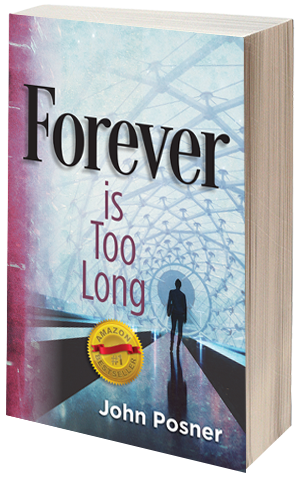
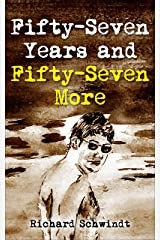
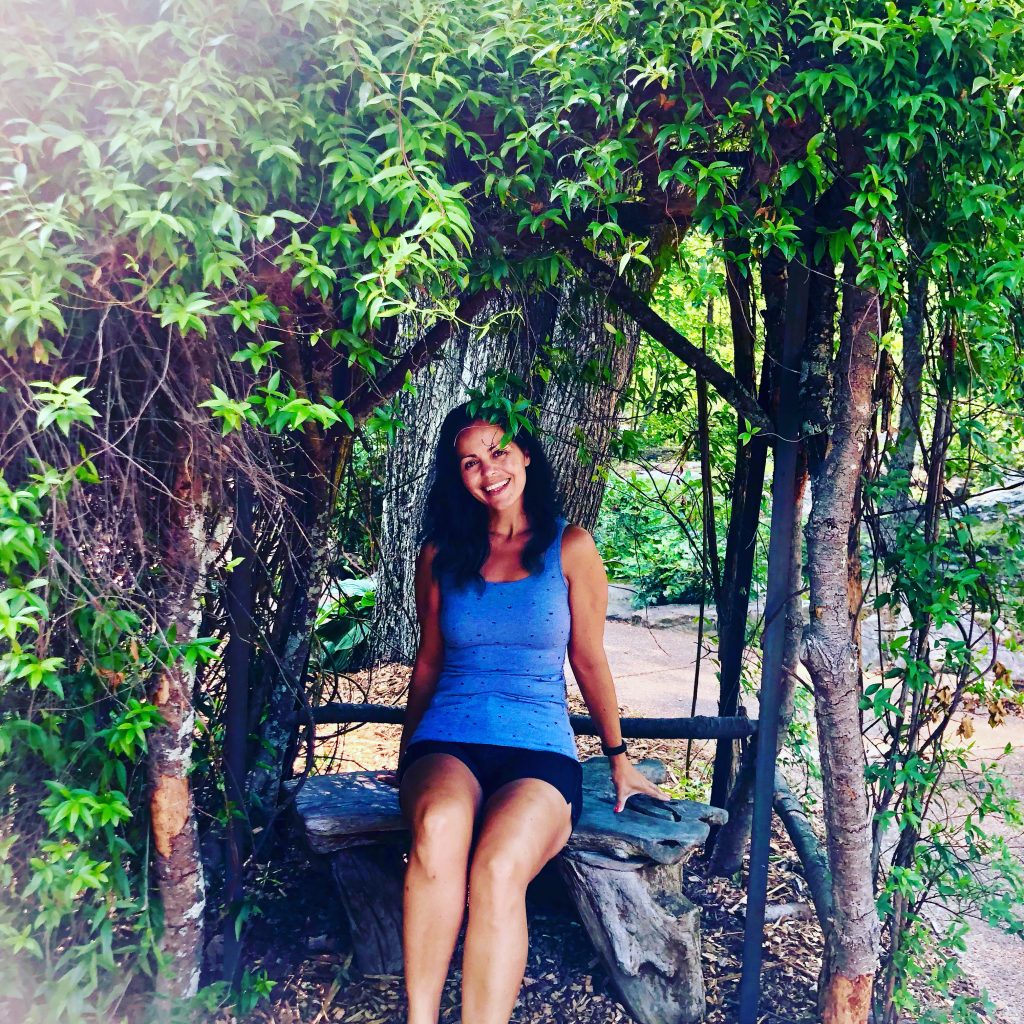
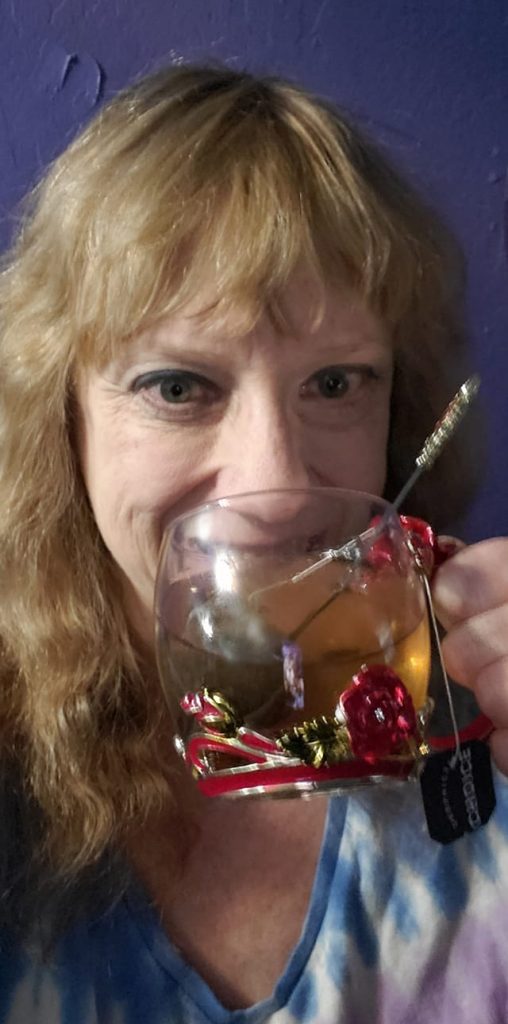

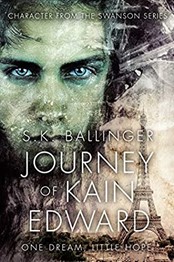




1 Response to "Author John Posner"
Rox, This sounds like an interesting read! Liked your interview too. Thanks for the recommendation.